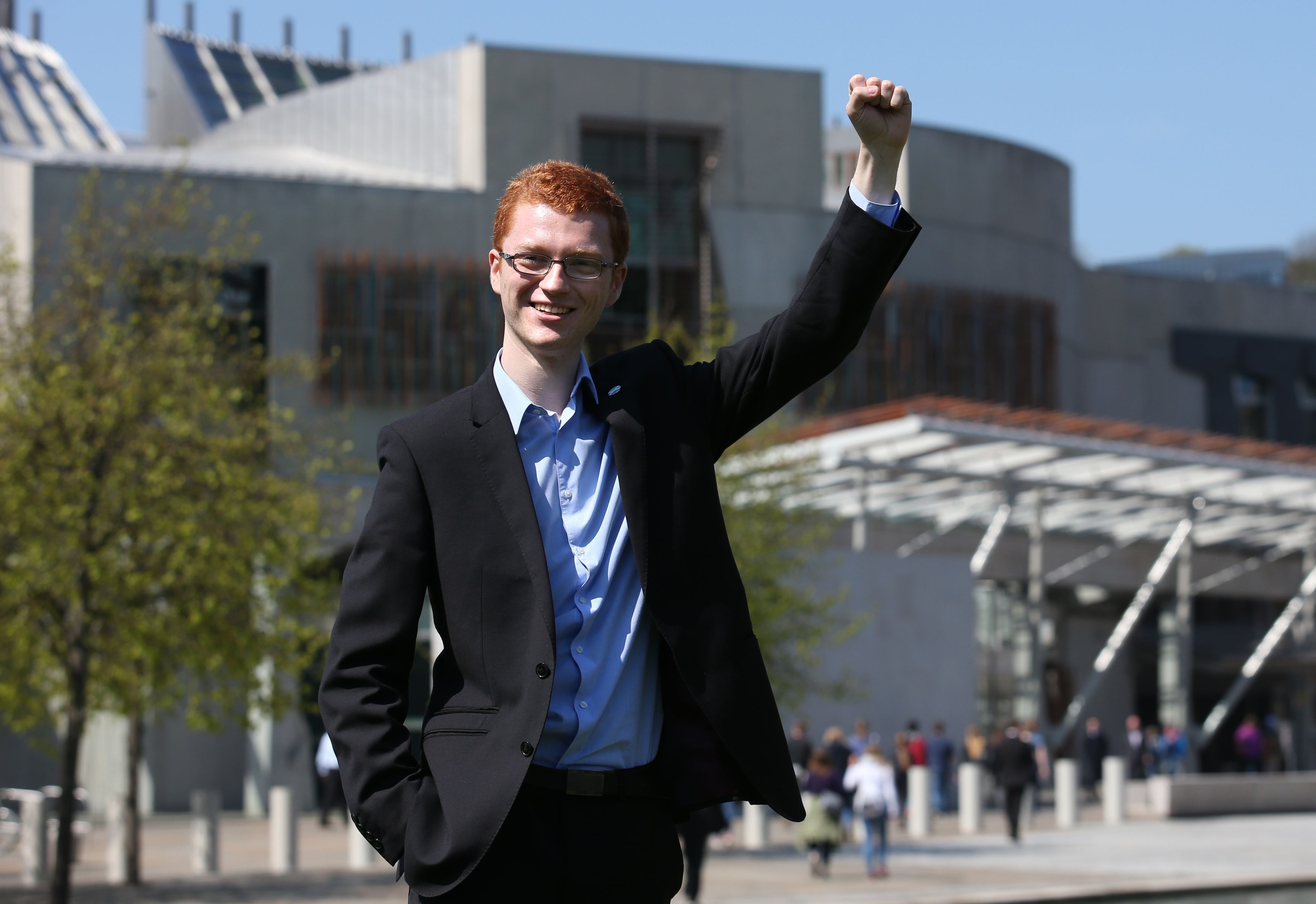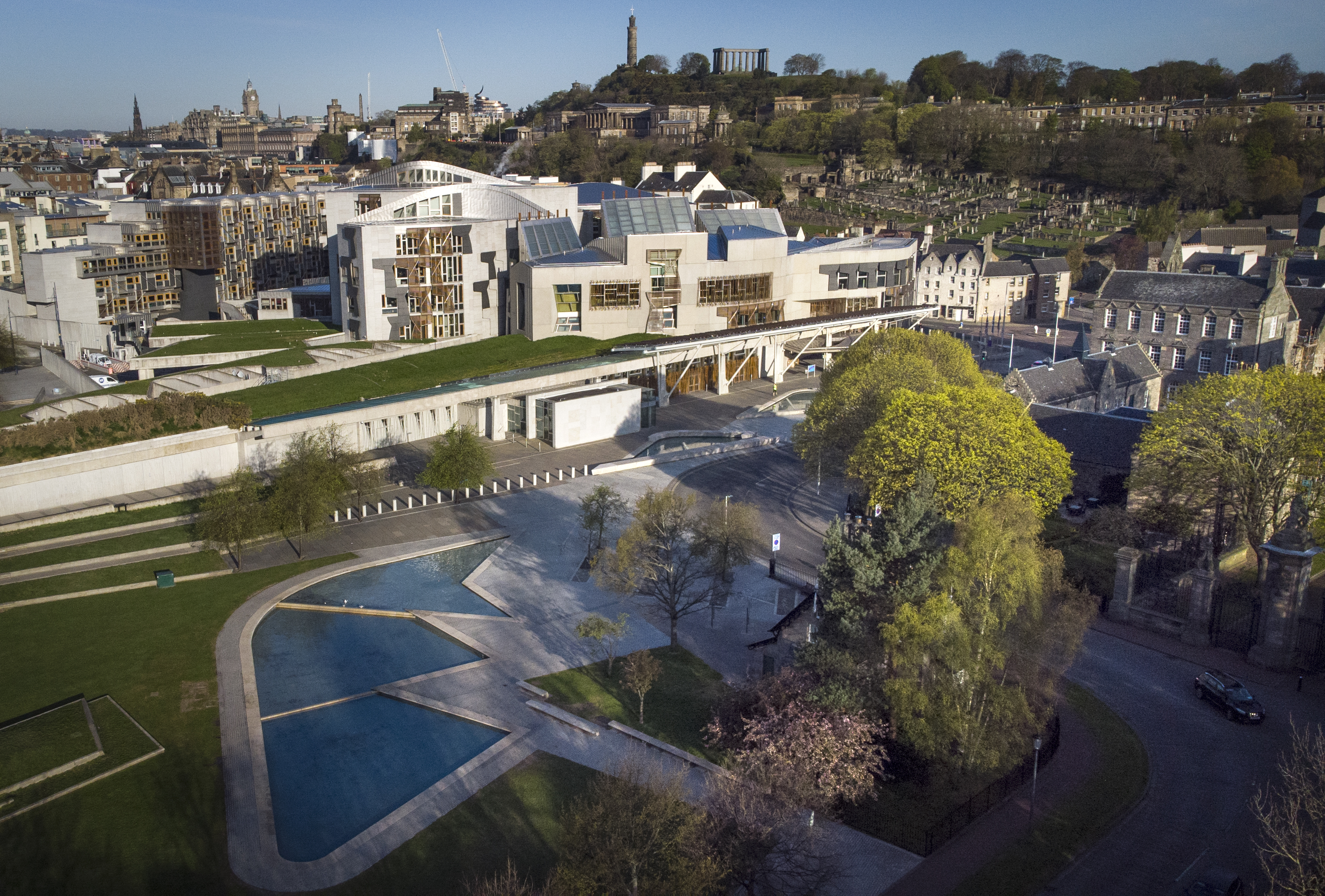Youngest ever MSP claims Holyrood is now ‘much more toxic’
Ross Greer of the Scottish Greens was 21 when he first became an MSP back in 2016.

The youngest ever MSP to be elected says Holyrood has become “much more toxic” in recent years, as he complained that homophobic abuse has become “considerably worse”.
Ross Greer of the Scottish Greens was 21 years old when he was first became an MSP, and he told how he had been “patronised” by those outside of Holyrood because of his age and had also suffered from “much more serious homophobic abuse”.
He spoke out on the issue to the PA news agency in the wake of the 25th anniversary of MSPs first being elected in 1999.
Mr Greer, who has served as an MSP for the West of Scotland region since 2016, said while many women in the Parliament suffer worse abuse, he has had to deal with both ageism and homophobia.
“I get much more serious homophobic abuse, and that has got considerably worse in the last couple of years.
“Scottish politics and Scottish society in general is a worse place for LGBT people than it was five years ago.”
While he said there was “much to be proud of” in the 25 years of devolution, he added that “in the past five years, on LGBT rights in particular, it feels like we have gone backwards”.
Debates over issues such as gender recognition reform have sparked fierce discussions both inside Holyrood’s chamber and amongst the wider public.
Mr Greer said: “Certainly the Parliament as an institution has become a much more toxic and adversarial place, it is mimicking a lot of the behaviours of Westminster that it was designed specifically to reject and to be an alternative to.”

But the Green stated: “I’m always fascinated by this idea that the Parliament has become too focused on ‘identity politics’ or ‘woke issues’ at the expense of what the public really care about.
“Because the implication of that is that any minority group that needs protected aren’t the public, the public are whatever the majority group is.
“If we govern on the basis of that we would only be governing for straight, white, middle aged men, who deserve good government just like everybody else.
“But if we only ever did the top three issues, something on health, something on education, something on the economy, we would never have had equal marriage, we would never have had protection against racial discrimination, we would have never bothered protecting disabled people.
“We would have never done so many things for so many vulnerable groups.”
The Green spoke out about his “frustration” that “a lot of the really productive work” done in Holyrood goes unnoticed by the wider pubic, with Mr Greer saying the “vast majority” of reports produced by the Parliament’s committees are agreed by consensus between the different parties.
“A lot of those committee reports are some of the most important work this Parliament does,” he said.
But he added: “They get by far the least attention of anything Parliament does.”
In contrast, he said First Minister’s Questions, which gives MSPs a chance every week to put questions to the First Minister, had become a “pantomime”.
Mr Greer said: “The highlight of the week in Parliament for anybody outside this place is First Minister’s Questions – we all know First Minister’s Questions is the least productive, least enlightening bit of the week.
“But we are all incentivised to turn it into the pantomime.
“Politicians are incentivised to say the things that will get them on the evening news and will get them that viral clip online.”
He added that having the devolved Parliament had given the Greens – the party he joined as a 15-year-old schoolboy – the chance to become a “fixed part” of political life in Scotland.

“Having Greens in Parliament is normal, we’ve been here since 1999, since the start, we have made our impact on Scottish politics.”
The MSP, who was still at nursery when the Scottish Parliament was established, said: “For me this place has always been here.”
He added: “Probably the single biggest success of the Scottish Parliament is you now have whole generations of people for whom it is the norm, and the idea of not having one is not just bizarre but unthinkable.
“It has cemented itself at the centre of Scottish public life, and as an expression of what the people of Scotland want their country to be and to look like.”





